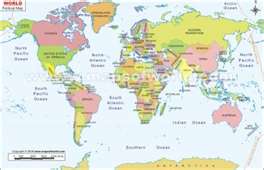In the Christian Old Testament, seeking food for self and animals is often a part of the stories. Herdsmen like Abraham moved to find better pastures for their flocks. A famine in Israel sent Jacob and his large family fleeing into Egypt. Lack of rain in the time of the prophets led Elijah to a miraculous encounter with a poor widow.
Obviously, areas with less predictable rain, as in much of the Middle East and parts of Africa, are more likely to suffer famine than countries in temperate climates. Sometimes, however, famine is not caused by weather but by conflict.
The Four Horsemen of the Apocalypse, who follow each other in the book of Revelation in the Christian New Testament, are sometimes depicted as conquest, war, famine, and death. The third horseman, famine, is not the result of weather but of conquest and war. It is human caused.
This kind of famine is afflicting millions of people in the countries of South Sudan, Nigeria, Somalia, and Yemen. In Sudan, they flee power struggles, often over oil revenues or ethnic rivalries. In Nigeria, people flee terrorism. Somalia’s looming famine is partly a problem with lack of rain but is increased by struggles with the terrorist group, al-Shabab.
Yemen, a country in the southern part of the Arabian Peninsula, suffers fallout from rivalry between Saudi Arabia and its arch enemy Iran. The two countries are supporting rival factions that are tearing the country apart. Terrorist groups also have made inroads, as they often do in areas of conflict.
Some relief is possible if food shipments can be unloaded in one of the ports. According to reports, Saudi Arabia has so far been unwilling to allow shipments to the people they are fighting.
The United States has supported Saudi Arabia in this struggle. If we are truly a compassionate nation, we will exert as much pressure as possible on Saudi Arabia not to use starvation as a weapon of war. Else, we will be collaborators in the resulting deaths.


 In this connected world, when Arab revolutions threaten, gas prices in the United States rise because of uncertainty. An actual disruption of oil shipments from the Middle East would cause an even steeper rise in prices.
In this connected world, when Arab revolutions threaten, gas prices in the United States rise because of uncertainty. An actual disruption of oil shipments from the Middle East would cause an even steeper rise in prices.